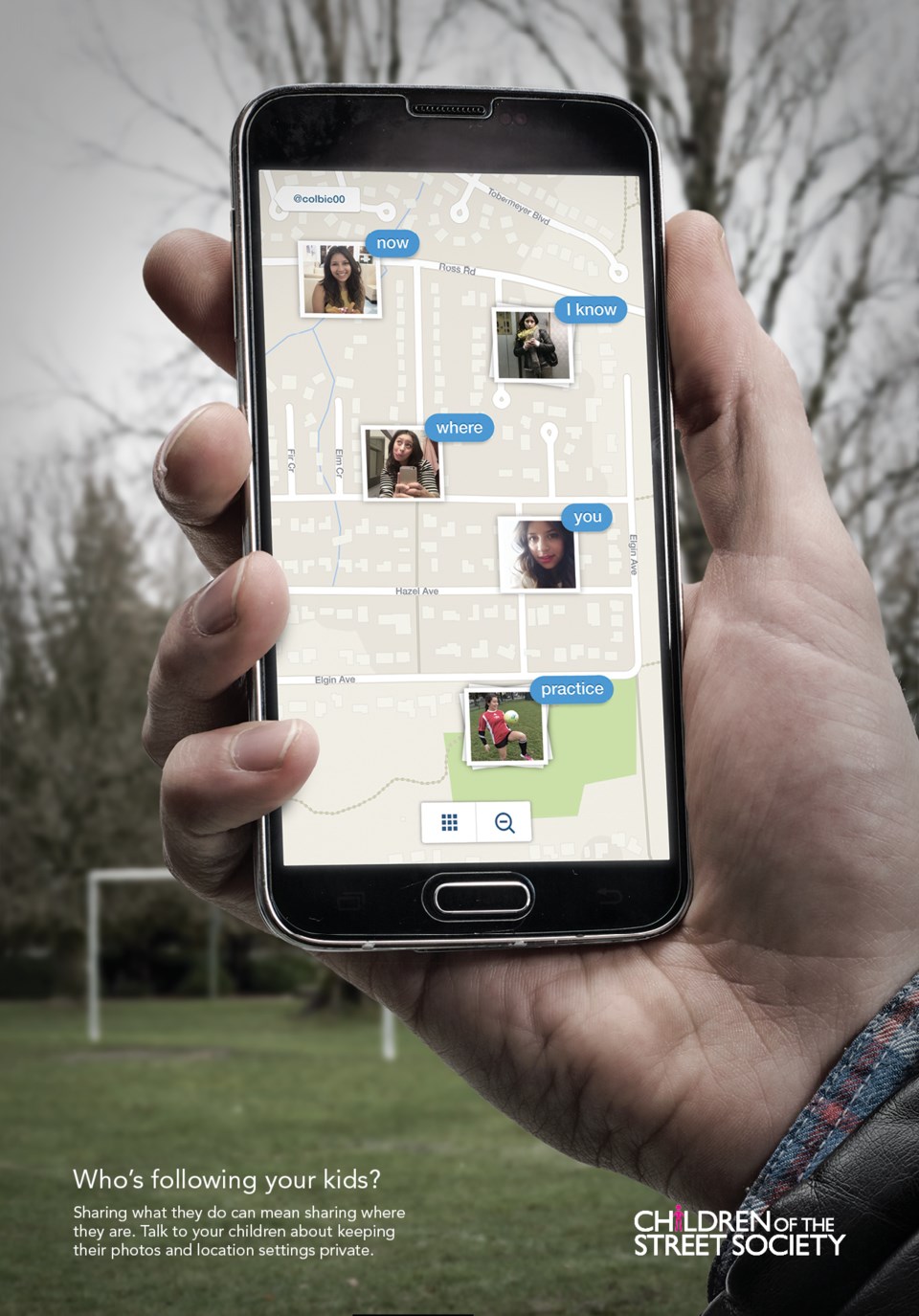The Coquitlam-based Children of the Street Society is encouraging parents and their kids to talk about their social media privacy settings in a new campaign designed to shed light on the tools predators can use to track potential victims.
The "New Follower" campaign features two posters that will go up in transit shelters this week. On the posters, Instagram maps have a series of photos posted on them showing the locations that a child or teen would normally frequent, such as their school, weekly soccer practice or the mall.
The campaign is designed to caution young people — and parents — to be aware of the information that is being shared online, both directly and indirectly.
"If someone is a predator and they target young people, [geotagging] makes it way easier to connect," said Diane Sowden, executive director of Children of the Street. "They can start up a conversation and make it all very familiar."
An online predator can use information about a child's neighbourhood, favourite coffee shop or soccer team to establish a connection and, potentially, a relationship with an unsuspecting youth.
Geotagging marks the location that a photo or post takes place; the largest stack of photos represents a location that the youth most commonly frequents.
Sowden said Children of the Street wanted to focus on geotagging because it is a significant issue discussed in the more than 600 workshops it gives each year.
She said many young people don't have privacy restrictions in place on their Instagram accounts and parents often don't know to check the settings — or that it needs to be done.
"Over the years, the technology has changed so quickly and, as adults, we're not keeping up," she said.
And while online technology can offer positive benefits, too often parents are handing over a powerful tool to their kids without understanding how to use it properly.
"We've done excellent work educating young people about the predator at the playground but when kids are answering questions online, they don't connect that it's a stranger at the other end," Sowden said. "We tell parents that the online world is the new playground."
Social media expert Jesse Miller suggested parents and kids take a holistic view of social media and the information they're sharing on a variety of apps.
"A kid can go online and never tell anybody where they go to school, their age," Miller said, but information can be gleaned from even the smallest details such as the gymnastics hoodie or hockey club jersey worn in a photo.
Frequented locations can also be discerned based on the information a young person's friends are posting.
• For more information on how to change your social media privacy settings, and to see the video that accompanies the Children of the Street's New Follower campaign, visit www.childrenofthestreet.com.



